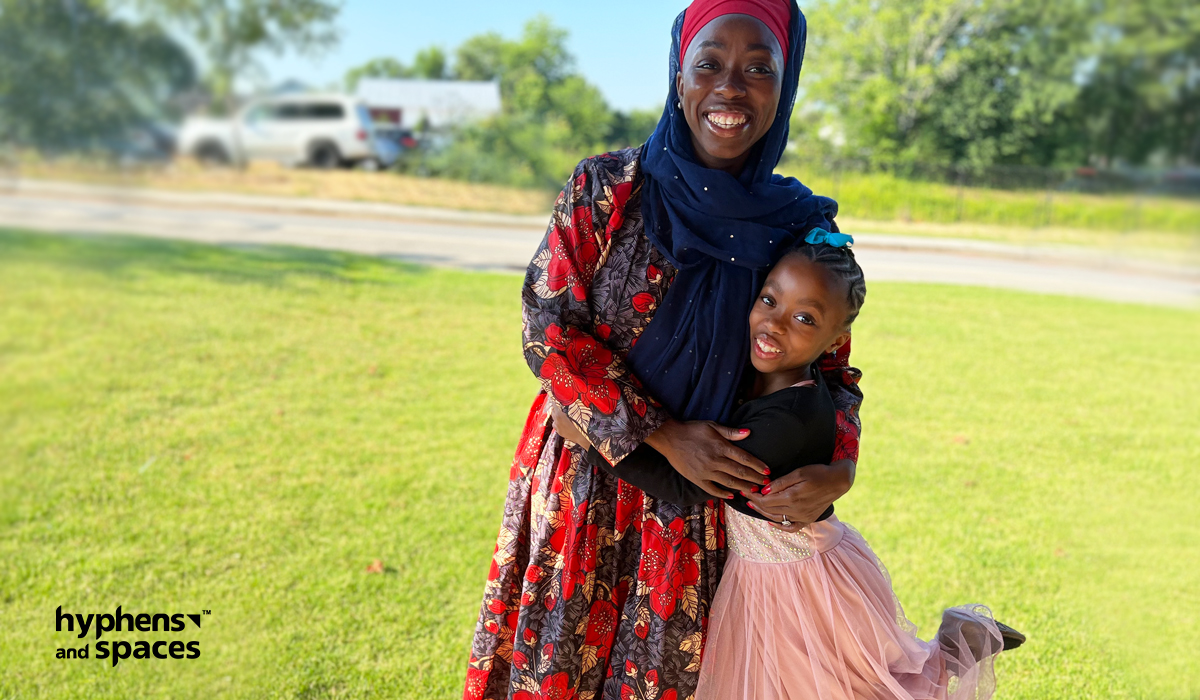Hope the change in seasons is ushering in new energy and fresh perspective in your lives and organizations.
As someone who’s spent the last 15 years in DEI with organizations of all shapes and sizes, I’ve seen a lot of what works, and more of what doesn’t.
More nuanced yet, there are many strategies that “work” for some organizations (for instance, larger ones), but when copied and pasted onto smaller teams, those same strategies can totally fall flat.
While we serve all types of teams here at Hyphens and Spaces, we’ve noticed a gap in DEI for smaller teams––i.e. 25-50 people, and even more specifically, for nonprofits and justice-centered organizations.
Let’s take ERGs for instance.
ERGs, aka “Employee Resource Groups,” are popular, effective ways to organize energy around various stakeholders to ensure all employees feel seen, heard, and resourced in their respective organizations.
However, when it comes to smaller nonprofits, ERGs don’t always make the most sense.
Why’s that?
Well, to have a successful ERG, you’ll likely need at least 4-6 people per group. But if you only have 25 people in your entire organization, creating one or two ERGs might actually bifocate your DEI efforts, instead of harnessing them.

Here are a few other factors that make DEI more challenging in nonprofits:
- Budgets are limited: We know this, but nonprofits often operate within tight budgets. With limited resources, any initiatives that aren’t directly tied to direct service or core mission activities, (including DEI efforts) can be extra difficult to allocate funds for.
- People are stretched thin: Nonprofits are typically comprised of small, multitasking teams. Finding dedicated people and time to carry forth DEI initiatives can be a struggle, given the myriad of responsibilities each staff member usually juggles.
- Leadership is often homogenous: Many nonprofits were founded when diversity and inclusion were not societal priorities. This legacy often results in boards that can lack diversity, and often recruit new members through existing networks, which only perpetuates homogeneity.
But hey, it’s not all bad. Challenges aside, we’ve experienced some amazing successes with small, dedicated nonprofit teams.
Here are a few unique opportunities nonprofits have to advance DEI:
- They’re internally motivated. Nonprofits often have DEI deeply ingrained in their missions and ethical obligations. Because nonprofits often have human-centered service or outcomes at the core of their mission, DEI can intrinsically be linked to that work. Further, employees are drawn to nonprofits because they believe in the mission, making DEI an internal motivator. For successful adaptation, initiatives can align the staff’s mission, values, and spirit with DEI outcomes.
- They’re practiced at being resourceful. Nonprofits, accustomed to tight budgets, often excel at making every dollar count. This resourceful approach can enhance DEI outcomes by integrating initiatives into existing strategies and prioritizing the most high-impact efforts to make.
- There’s more room to shift power dynamics. Nonprofits committed to reducing disparities have a unique opportunity to more seriously focus on equity and transparency within their organizational culture. This can entail reevaluating decision-making processes, power flows, and cultural norms. Diversifying and auditing governing boards and their processes is a crucial step in rebalancing power dynamics. If it’s a part of your mission, it allows this often difficult step to be taken (and seriously, at that).
- There’s community accountability at play. When we work with nonprofits, it’s never just about the internal change that needs to occur––it’s also about filtering out that change to their community and stakeholders. Typically, nonprofits serve underresourced communities, and to do this work effectively, equity and inclusion are key. When organizations are committed to DEI internally, their communications strategy and community impact become even more aligned and effective, which can strengthen the organization as a whole and garner more funding in the long run.
Looking for a team who understands nonprofit or small team dynamics, and can help you usher in sustainable change in your org at a price you can afford?
I cleared time on my calendar up until December 1st, 2023 so I could hear directly from you. Book a call with me here for a pressure-free consultation. We can see where you’re at, unearth your best next steps, and identify potential alignment.

Warmly,![]()
Samira Abdul-Karim
Co-founder & CEO, Hyphens & Spaces


